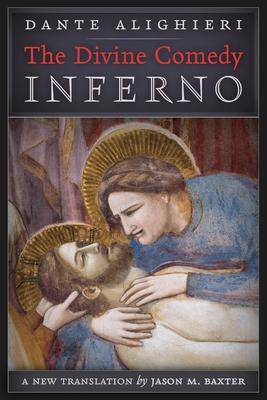This vivid new translation of Dante's immortal classic, Inferno, opens a new vista and offers a fresh experience of this milestone in human literary genius. Throughout his life, Dante struggled with the question of how to convey the solemn gravity of the Latin classics into the "vulgar" language of his native Italy. At the same time, he was convinced that the vernacular of his time and place had color and vibrancy that the "heady," more cerebral, classic literature lacked. Writing the Inferno was Dante's breakthrough moment in wedding these two very different "personalities" of poetic expression. Jason Baxter's new, pulsing, rhythmic translation is alive with spiritual energy from both these streams. Here we have an Inferno that we feel in our nerves and in our blood, as well as in the heart and head.

This vivid new translation of Dante's immortal classic, Inferno, opens a new vista and offers a fresh experience of this milestone in human literary genius. Throughout his life, Dante struggled with the question of how to convey the solemn gravity of the Latin classics into the "vulgar" language of his native Italy. At the same time, he was convinced that the vernacular of his time and place had color and vibrancy that the "heady," more cerebral, classic literature lacked. Writing the Inferno was Dante's breakthrough moment in wedding these two very different "personalities" of poetic expression. Jason Baxter's new, pulsing, rhythmic translation is alive with spiritual energy from both these streams. Here we have an Inferno that we feel in our nerves and in our blood, as well as in the heart and head.